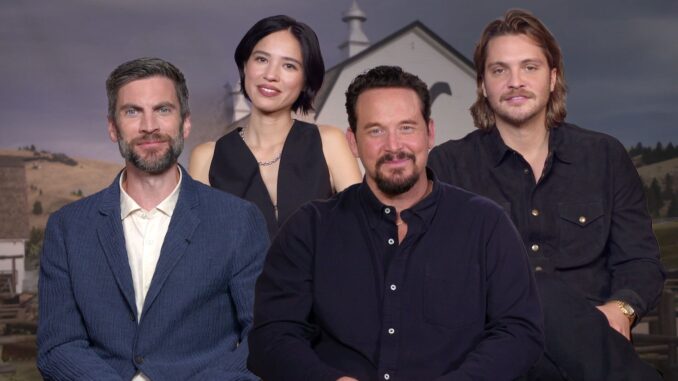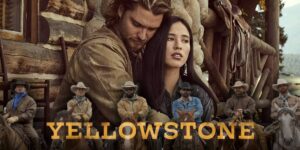
As Yellowstone concludes its dramatic run, the impact of the series extends far beyond the screen. Taylor Sheridan’s neo-Western drama has captivated millions with its intense family conflicts, gritty portrayal of ranch life, and sprawling Montana landscapes. Yet, the show’s influence on perceptions of the modern West—its culture, economy, and environmental challenges—has sparked significant debate. While Yellowstone will be remembered as a television phenomenon, its legacy leaves a mixed impression on the very region it brought to the forefront of popular culture.
At its core, Yellowstone romanticized the rugged independence and resilience associated with the American West. It depicted the Dutton family’s fight to preserve their generational ranch, crafting a narrative of tradition versus encroaching change. Through the lens of the Duttons, viewers saw the West as a battleground for cultural identity, economic survival, and environmental stewardship. However, some argue that this portrayal oversimplified, and at times distorted, the complexities of life in the region.

One of the most significant impacts of Yellowstone has been on tourism in Montana and neighboring states. The show’s stunning visuals inspired a surge in visitors eager to experience the grandeur of the West for themselves. This economic boost has been a boon for local businesses, from hotels to outdoor adventure companies. Yet, it has also strained natural resources and disrupted small-town life. Increased foot traffic in once-quiet areas has led to environmental degradation and rising property values, making it harder for local residents to afford housing.
The real estate market, in particular, has been transformed by the Yellowstone effect. Wealthy buyers, drawn by the show’s portrayal of sprawling ranches and untamed wilderness, have flocked to Montana, Wyoming, and other Western states, driving up prices. For many locals, this influx of outsiders represents a new form of colonization—one that pushes out working families and dilutes the cultural heritage of the region. While Yellowstone highlighted the importance of land ownership and legacy, its influence has ironically contributed to the erosion of those very ideals for many rural communities.
Environmental concerns have also come to the forefront. While Yellowstone occasionally addressed issues like conservation and land management, its dramatic storylines often overshadowed these themes. In reality, the West faces significant challenges, from water shortages to climate change and the loss of native species. Critics argue that the show glamorized the exploitation of natural resources without sufficiently exploring the consequences. This selective storytelling may have perpetuated misconceptions about the environmental realities of ranching and land use in the modern West.

Cultural representation within Yellowstone has also been a point of contention. The show incorporated Native American characters and storylines, acknowledging their historical and ongoing struggles. However, some viewers and scholars feel these narratives were secondary to the Dutton family’s saga, missing an opportunity to fully address the complexities of Indigenous experiences in the West. The portrayal of tribal sovereignty, land disputes, and cultural preservation offered glimpses of the larger issues at play but often lacked the depth and nuance these topics deserve.
Despite its criticisms, Yellowstone has undeniably sparked conversations about the American West in a way few other shows have. It reignited interest in the region’s history, values, and challenges, encouraging audiences to reflect on what the West means in the 21st century. For better or worse, it brought rural struggles into mainstream awareness, reminding viewers that the fight for land, identity, and survival is not confined to the past.

As the curtain falls on Yellowstone, its legacy will continue to be debated. For fans, it remains a gripping drama that captured the spirit of the West. For critics, it serves as a cautionary tale about the power of media to shape perceptions and influence real-world outcomes. Ultimately, the end of Yellowstone marks not just the conclusion of a television series, but the beginning of a larger reckoning with how we understand and protect the places and people it sought to portray.
